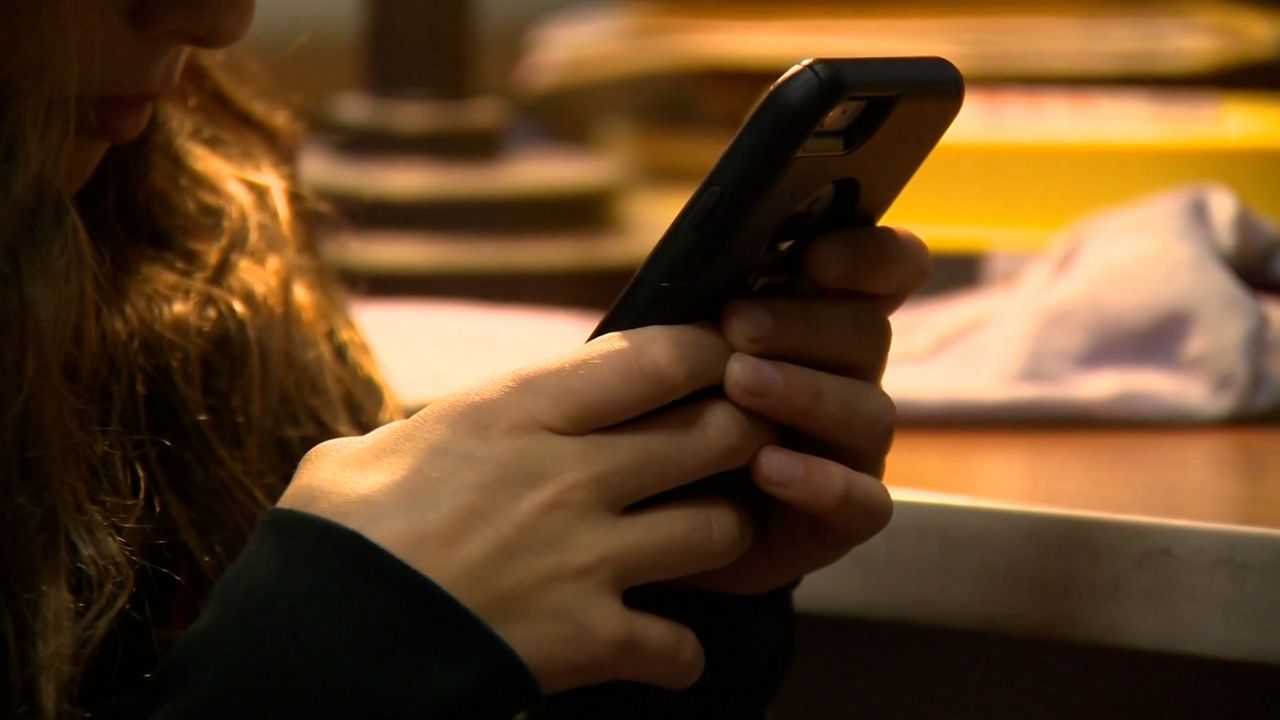WORCESTER, Mass. – As legislation to ban students from using their cell phones at school gains traction in Massachusetts, one local teacher is hopeful state lawmakers will be able to solve the pervasive problem she’s been trying to tackle for several years.
What You Need To Know
- The Massachusetts Senate will vote on a bill which would largely ban the use of cell phones in schools on Thursday
- A local teacher believes the issue of students using their phones in the classroom has worsened since the pandemic
- Some Massachusetts school districts have already set similar policies at the local level
- If the bill passes, school districts will have to create their own policies using guidance from the state
Christine Mooshian, a special education inclusion teacher at South High Community School, believes that in the years since students returned to the classroom after the pandemic, the distraction of cell phones has become a problem widespread enough to cause real harm to their education.
“In a classroom such as mine of anywhere between 12 and 15 students who have learning disabilities such as ADHD, OCD, dyslexia, hearing problems, socioemotional disorders, skills are getting missed in a major way,” Mooshian said. “Social skills are getting missed.”
It’s an issue Mooshian has been trying to address within Worcester Public Schools for several years, and with the Massachusetts Senate set to vote on its ‘cell phone-free classrooms’ bill this week, she hopes that eventually, dealing with a distracted student doesn’t have to be so tedious for teachers.
“In many cases, it becomes an argument, and an argument that teachers don’t want to have,” Mooshian said. “If we had a clear policy that I as a teacher could reference and say ‘The district says you can’t do this,’ it would be so much easier for teachers to spend less of their time in class dealing with issues of cell phones.
If passed, the bill would require school districts to create a policy using guidance from the Massachusetts Department of Elementary and Secondary Education. There would likely be consideration given for certain case-specific students, and punishments would not rise to the level of a suspension or expulsion.
Mooshian added that common concerns about students needing their cell phones for an emergency situation shouldn’t prevent putting these policies in place, and they’d likely be able to keep their cell phone on their person so long as it’s powered off or not being used during class. In any case, she said there are other ways to be able to communicate.
“A lot of my colleagues have come to me saying that kids will say they can’t take their cell phones away because their family has to be able to get in touch with them,” Mooshian said. “I might be a little old school, but there’s a phone in the school building, all the parents have to do is call the main office and the phone call can get transferred right into a classroom and the student can speak to their parent.”


